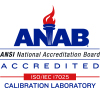 Posted on
Posted on 
Vaccines have revolutionized modern medicine, saving countless lives and eradicating deadly diseases. As the world faces new health challenges, the importance of vaccines has never been more evident. However, the effectiveness of vaccines relies heavily on their proper storage and handling. Ensuring that vaccines are stored at the right temperatures is crucial to maintain their potency and efficacy. In this blog post, we will highlight the significance of vaccine monitoring and how it safeguards public health. We also encourage you to download our whitepaper on optimum vaccine monitoring temperatures to equip yourself with essential knowledge on this critical subject.
The Impact of Temperature on Vaccine Efficacy
Vaccines are sensitive biological products that require strict temperature control to remain effective. Whether they are in transit, in storage facilities, or administered to patients, vaccines must be maintained within specific temperature ranges. Deviations from these temperature ranges can lead to a loss of potency, rendering the vaccines ineffective and compromising public health efforts.
Importance of Vaccine Monitoring
Vaccine monitoring involves continuous temperature monitoring at all stages of the vaccine supply chain. Data loggers play a crucial role in this process by recording real-time temperature data, allowing healthcare professionals to ensure that vaccines are stored under optimal conditions. Here are some key reasons why vaccine monitoring is essential:
1. Efficacy Preservation: By monitoring vaccine temperatures, healthcare providers can identify any temperature excursions that may impact the vaccines’ potency. Prompt action can be taken to protect their efficacy, ensuring that patients receive vaccines with the full intended protective benefits.
2. Public Health Protection: Effective vaccines are vital for preventing the spread of infectious diseases and protecting vulnerable populations. Monitoring temperature throughout the supply chain helps maintain the integrity of vaccines and safeguards public health on a large scale.
3. Regulatory Compliance: Healthcare facilities must comply with strict regulatory guidelines for vaccine storage and handling. Monitoring and recording temperature data with data loggers are critical for demonstrating compliance during audits and inspections.
4. Minimizing Wastage: Improper storage and temperature fluctuations can lead to vaccine wastage, which not only wastes valuable resources but also deprives people of vital immunization. Vaccine monitoring helps reduce wastage and ensures that more people can be protected.
Download Our Whitepaper on Optimum Vaccine Monitoring Temperatures
To further understand the significance of vaccine monitoring and ensure the proper handling of vaccines in your healthcare facility, we invite you to download our informative whitepaper on optimum vaccine monitoring temperatures. This comprehensive guide offers valuable insights into best practices for vaccine storage, the importance of data loggers in temperature monitoring, and real-life case studies that underscore the criticality of maintaining proper vaccine temperatures.










